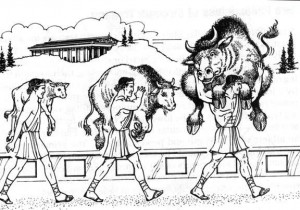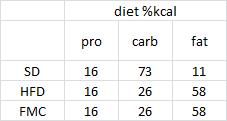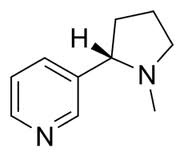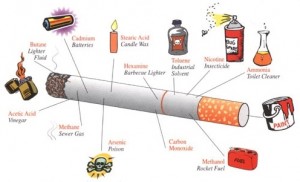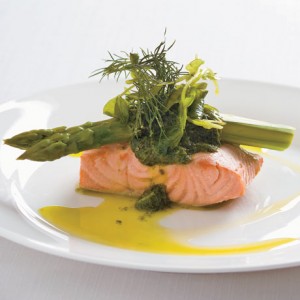Lesson 1. Milo of Croton
Every day since a very young age, Milo would drape his calf over his shoulders and do his daily exercises. As his calf grew, so did Milo’s strength. Many years passed and by the time of the Olympic games, Milo’s calf had become a full-grown bull and Milo’s strength became unparalleled in all the land (or so the story goes).
This is how strength-training works. Increasing the amount of weight you lift progressively, consistently, and frequently makes you stronger.
Lesson 2. Concurrent training
Resistance training builds muscle and strength. Endurance exercise is good for the heart, burns fat and muscle, but doesn’t make you stronger. Endurance exercise hinders the gains reaped from resistance exercise, not vice versa. Interpretation: runners should lift; lifters shouldn’t run (sprints don’t count).

